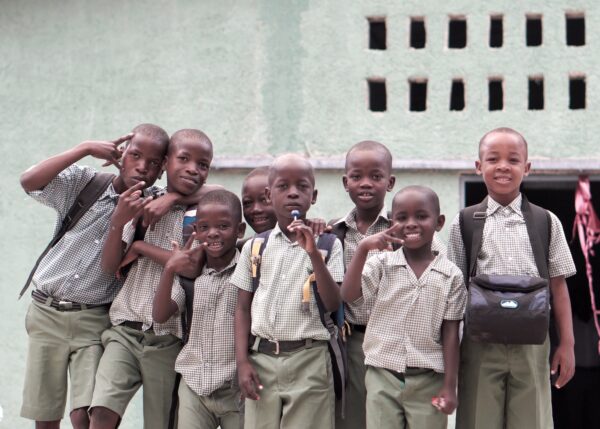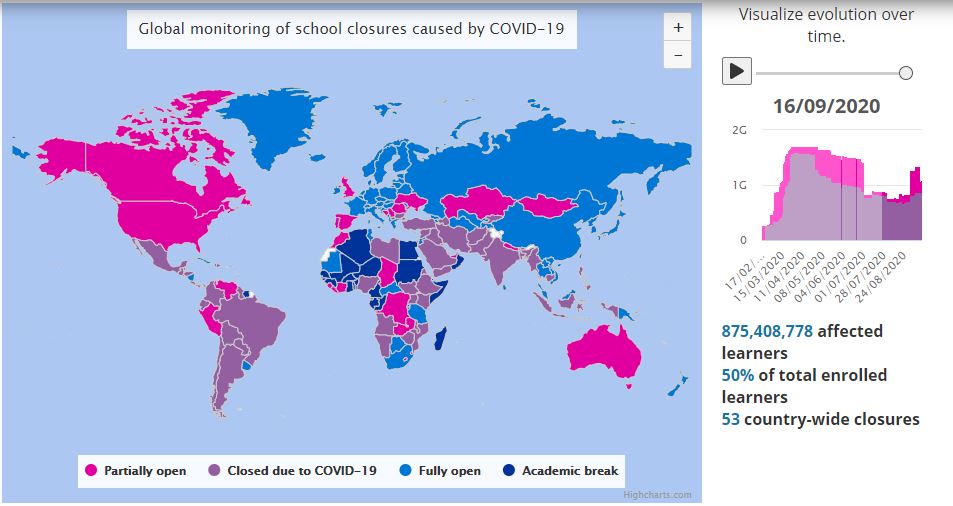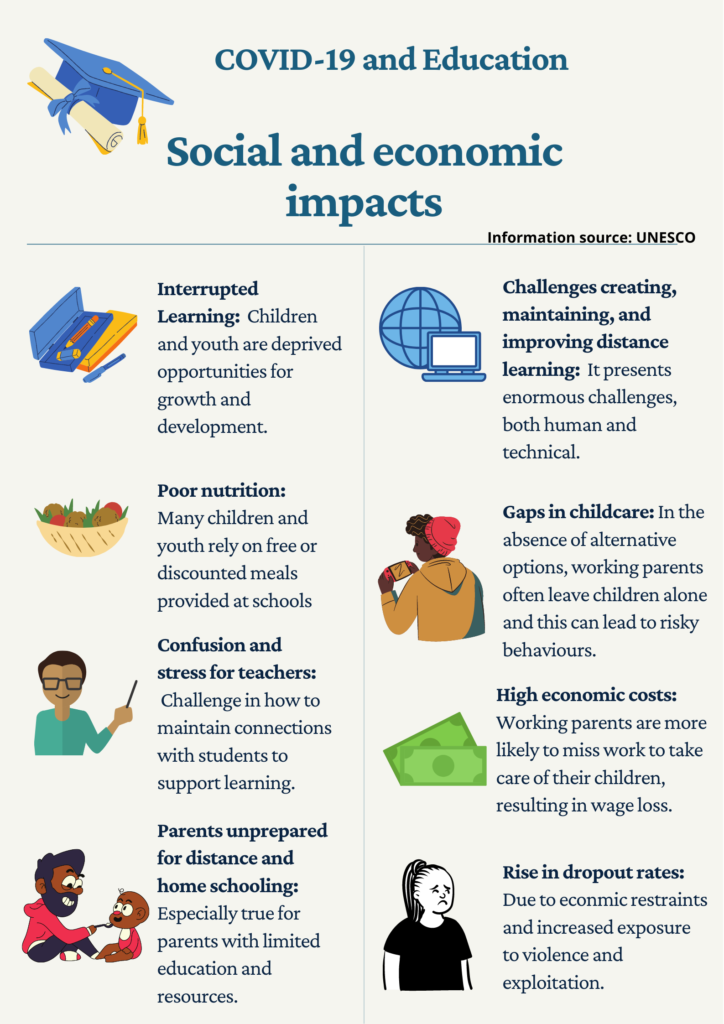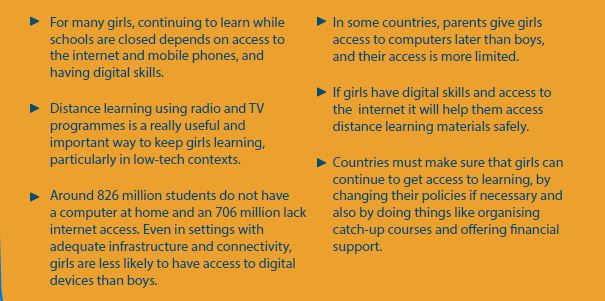
Photo Credit: Zach Vessels
The COVID-19 pandemic is first and foremost a health crisis. When it began to escalate worldwide, many countries to protect students, closed schools, colleges and universities. Since then the pandemic has brought unprecedented educational disruption with 1.2 billion students and youth across the continent affected due to the school closures, reports the United Nations Educational, Scientific and Cultural Organisation (UNSECO).

Global monitoring of school closures caused by Covid-19. Source: UNESCO
Note: Figures correspond to number of learners enrolled at pre-primary, primary, lower-secondary, and upper-secondary levels of education as well as at tertiary education levels. Enrolment figures based on latest UNESCO Institute for Statistics data.
The social, mental and economic toll of school closures affects everyone in society, however the most vulnerable are marginalised boys and girls and their families. UNESCO notes that learning disruptions intensify already existing disparities within the education system but also in other aspects of their lives. Some of the challenges are highlighted in the table below:

These social and economic disparities were part of the discussions at the Global Education Forum 2020 virtual conference on September 10. It featured several world leaders and education stakeholders including former British Prime Minister Gordon Brown and Mrs.Graça Machel, who delivered a keynote address that emphasised on the importance of education as a key driver for a better future.
The speakers called for urgent actions to be taken to tackle the learning disruptions that many countries are facing. All of them in agreement that success could only be achieved we continue to work collaboratively. Mrs. Machel noted that progress on gender equality, girls’ education and opportunity for all, will not be possible without progress on education as a whole. “Getting girls into schools can help protect them from risks – but only if we make sure that they learn while they are in school will we really maximize their potential to drive change.”
Her sentiments are echoed in the UNESCO #LearningNeverStops campaign that recognizes that around the world, 130 million girls were out of school before COVID-19. Now, the pandemic threatens to halt the education of more than 11 million girls. Fewer girls in the classroom, mean fewer women who can make valuable social and economic contributions to their communities later on.

#Learningneverstops. Source: UNESCO.
As more countries are leaning towards the opening of schools, Ms Machel cautioned, “As the discussion, today has highlighted, we need to make rapid progress on Action area 1, to safely reopen schools, and Action area 2, to measure and adapt schools to the new normal. All other action areas will build on these – we need to first guarantee children’s safety and ensure they can return to school.”










 The Trust supports and mobilises civil society networks on issues of ending child marriage, ending violence against children, ending female genital mutilation and promoting children’s rights, to carry out advocacy and action across Africa. Special focus is placed on Malawi, Mozambique, Tanzania and Zambia where child marriage continues to be a problem largely driven by poverty, gender inequality, harmful traditional practices, conflict, low levels of literacy, limited opportunities for girls and weak or non-existent protective and preventive legal frameworks.
The Trust supports and mobilises civil society networks on issues of ending child marriage, ending violence against children, ending female genital mutilation and promoting children’s rights, to carry out advocacy and action across Africa. Special focus is placed on Malawi, Mozambique, Tanzania and Zambia where child marriage continues to be a problem largely driven by poverty, gender inequality, harmful traditional practices, conflict, low levels of literacy, limited opportunities for girls and weak or non-existent protective and preventive legal frameworks.




 Education is a fundamental right for all children, which is also a vehicle for social, economic and political transformation in communities, countries and the African continent at large. Recent studies indicate a lack of progress in some of the critical commitments aimed at improving education quality, access, retention and achievement, particularly for girls. In most African countries, girls may face barriers to learning, especially when they reach post-primary levels of education. By implementing multi-dimensional approaches to education which includes core education, personal development, life skills and economic competencies, the Trust partners with funding partners, governments, civil societies and the private sector to improve education access.
Education is a fundamental right for all children, which is also a vehicle for social, economic and political transformation in communities, countries and the African continent at large. Recent studies indicate a lack of progress in some of the critical commitments aimed at improving education quality, access, retention and achievement, particularly for girls. In most African countries, girls may face barriers to learning, especially when they reach post-primary levels of education. By implementing multi-dimensional approaches to education which includes core education, personal development, life skills and economic competencies, the Trust partners with funding partners, governments, civil societies and the private sector to improve education access.

 The Nutrition and Reproductive, Maternal, New-born, Child and Adolescent Health and Nutrition, (RMNCAH+N) of the Children’s Rights and Development Programme aims at promoting the Global Strategy for women, children and adolescents’ health within the Sustainable Development Goals (SDG) agenda. The strategy emphasises on the importance of effective country leadership as a common factor across countries making progress in improving the health of women, children and adolescents.
The Nutrition and Reproductive, Maternal, New-born, Child and Adolescent Health and Nutrition, (RMNCAH+N) of the Children’s Rights and Development Programme aims at promoting the Global Strategy for women, children and adolescents’ health within the Sustainable Development Goals (SDG) agenda. The strategy emphasises on the importance of effective country leadership as a common factor across countries making progress in improving the health of women, children and adolescents. Through its Early Childhood Development (ECD) plan, The Trust will seek to put into action the new science and evidence Report that was presented by Lancet Series on Good and early development – the right of every child. This will be achieved by mobilising like-minded partners to contribute in the new science and evidence to reach all young children with ECD. The Trust’s goal is to be a catalyst for doing things differently, in particular, to rid fragmentation and lack of coordination across ECD sectors. In response to evidence showing the importance of political will in turning the tide against the current poor access and quality of ECD. Even before conception, starting with a mother’s health and social economic conditions, the early years of a child’s life form a fundamental foundation that determines whether a child will survive and thrive optimally.
Through its Early Childhood Development (ECD) plan, The Trust will seek to put into action the new science and evidence Report that was presented by Lancet Series on Good and early development – the right of every child. This will be achieved by mobilising like-minded partners to contribute in the new science and evidence to reach all young children with ECD. The Trust’s goal is to be a catalyst for doing things differently, in particular, to rid fragmentation and lack of coordination across ECD sectors. In response to evidence showing the importance of political will in turning the tide against the current poor access and quality of ECD. Even before conception, starting with a mother’s health and social economic conditions, the early years of a child’s life form a fundamental foundation that determines whether a child will survive and thrive optimally.